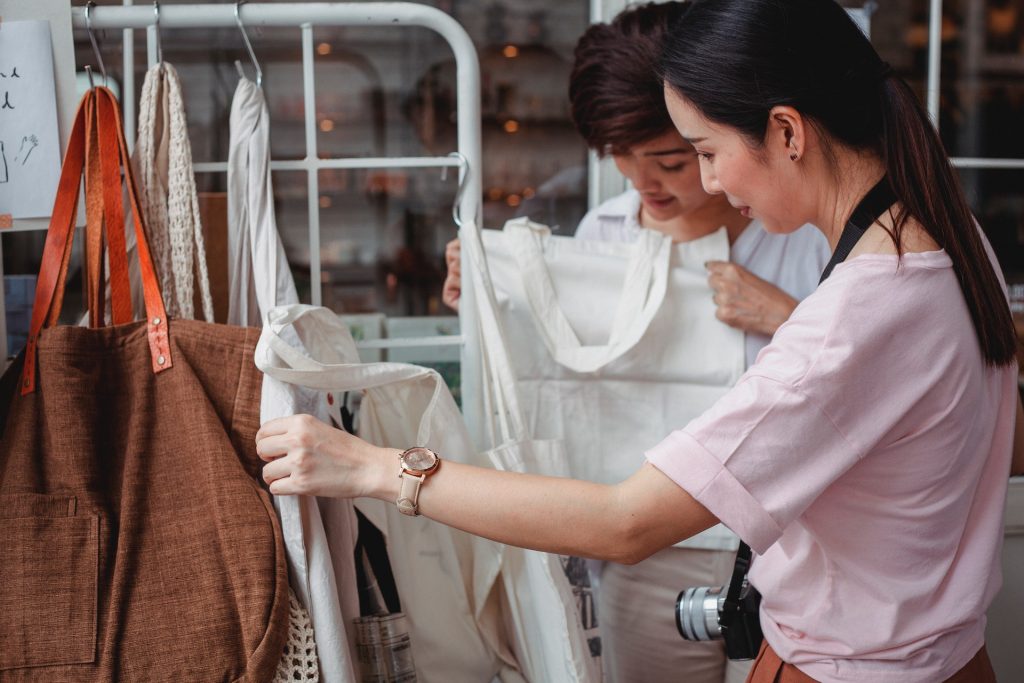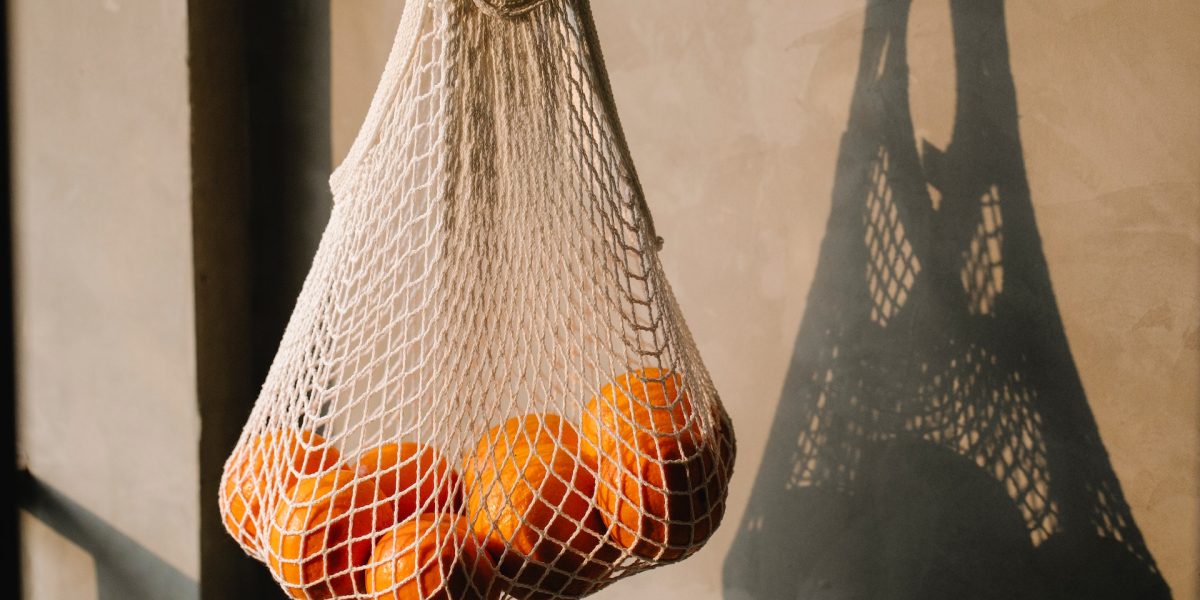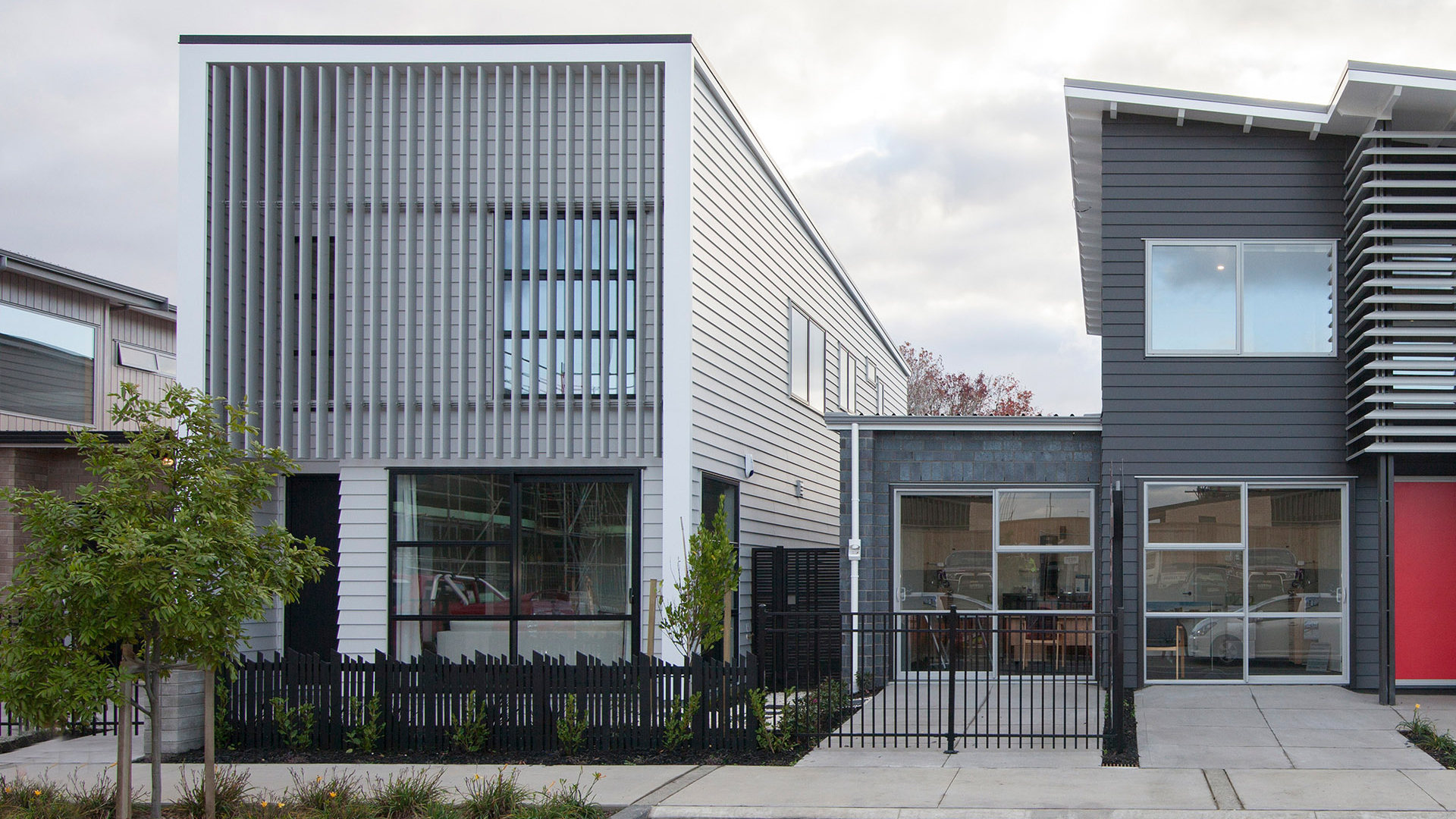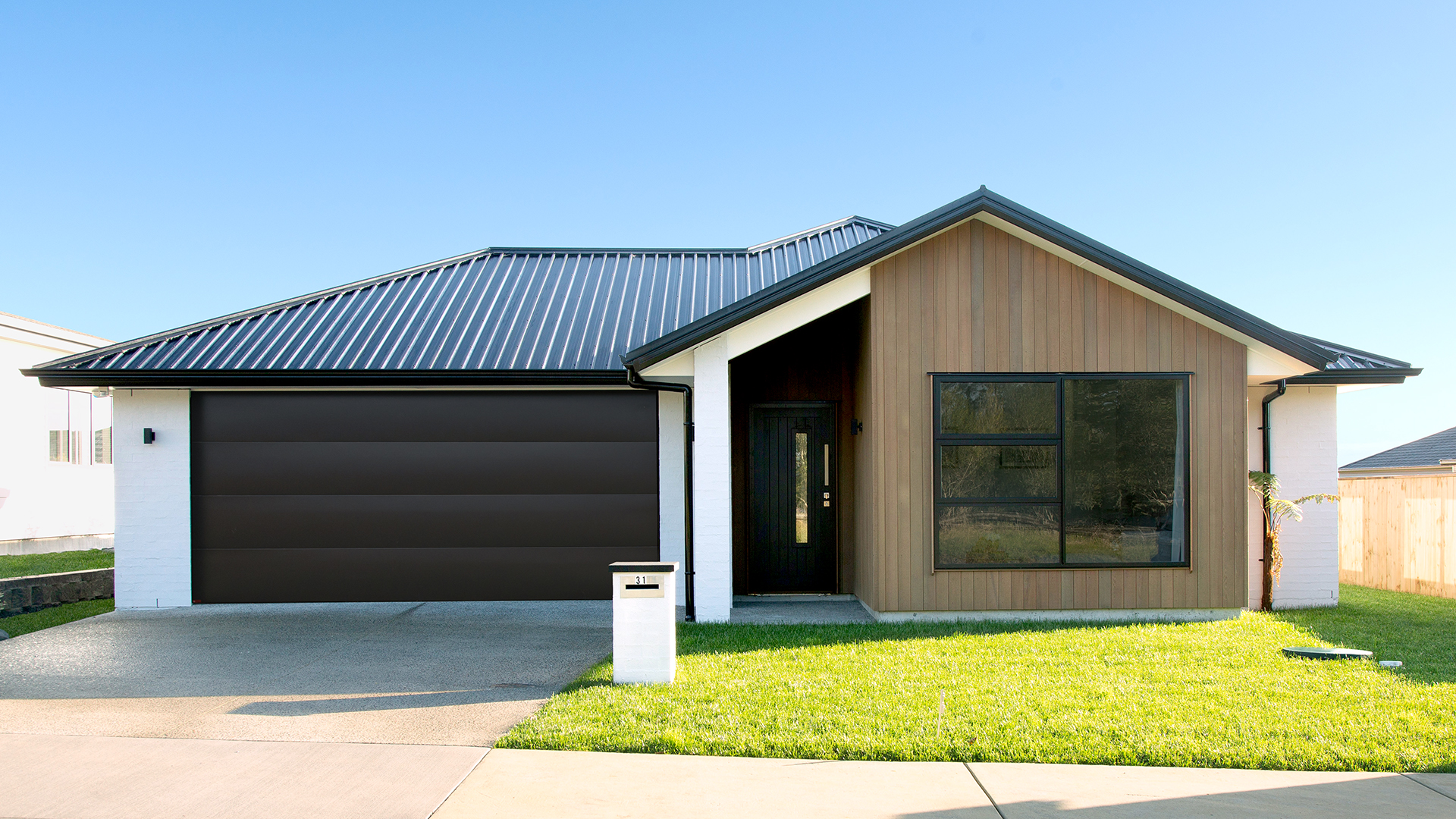10 Tips for Starting a Low-Waste Lifestyle
Are you considering going zero-waste but think it’s impossible without a whole lot of compromise? If you take pointers from our list, you’ll soon find out that living with less waste is doable with a few adjustments to your lifestyle and some creativity. Although generating absolutely zero trash is rather difficult, you can still switch your focus to sending as little to landfill as possible.
Adopting waste-free habits by making gradual lifestyle changes is better for the planet and for you. It all starts with redefining what you buy, throw away, reuse and recycle. Going as zero-waste as you possibly can is about making small changes and realising that there is no harm in questioning what you really need across every aspect of your life.
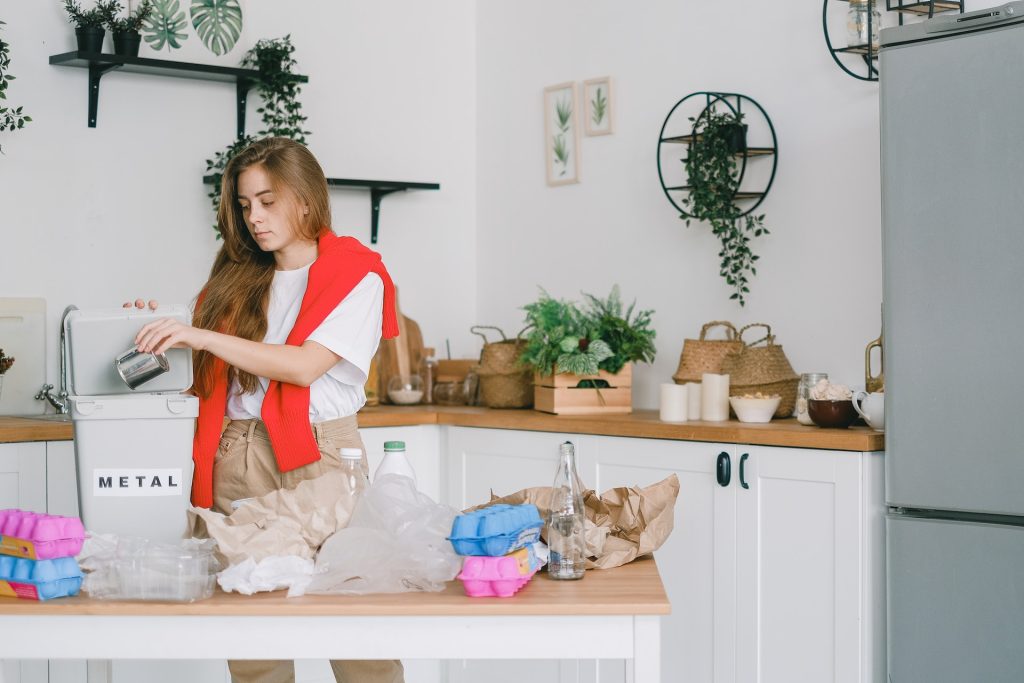
Taking a Stance Against Waste
Embracing a new way of living with a zero-waste mindset is something many people aspire, but not everyone knows where to start. One place to get your inspiration from is Béa Johnson, the French US-based author and motivational speaker who initiated the zero-waste movement. With her book Zero Waste Home and through her blog and podcasts, she inspires people to take a stance against overconsumption and needless waste.
Alongside the familiar three Rs of sustainability (Reduce, Reuse, Recycle), Béa has introduced two more: Refuse and Rot (compost). With these five principles and in the correct order, anyone can take significant steps towards a waste-free lifestyle.
Refuse: Say no when you are offered something that isn’t necessary.
Reduce: Consider using and buying less as this means there’s less to throw away.
Reuse: Find another use for items such as jars, bottles, boxes and containers.
Recycle: Why buy everything new? Shop pre-loved and donate your unwanted items.
Rot (Compost): Give it back to nature. Worms will turn our leftovers into fertiliser.
Impactful Earth-Friendly Habits
If you are motivated by the idea to live a simpler, more sustainable life, these ten practical tips for starting a waste-free lifestyle will help you get started.
- Choose foods with minimal or no packaging
Being mindful of waste in your kitchen is a simple but effective adjustment. Buy your produce at the local farmers’ market or grow your own vegetables if you have the space and time. Choose bulk bins over packaged food items such as nuts, seeds, cereal and pastas, and bring your own cotton bags, resealable jars and airtight food containers when you go grocery shopping and use them for goods that would otherwise be wrapped in plastic or paper.
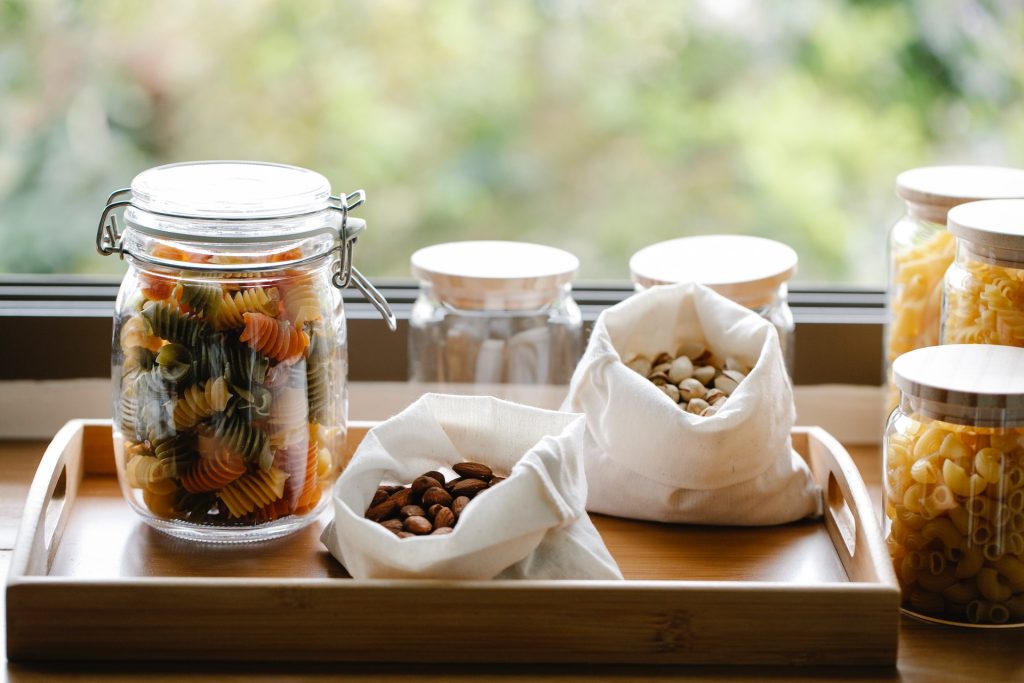
- Swap disposables for reusables
The first step to living a low-waste lifestyle is to cut back on single-use plastic. A zero-waste product is an item that can be composed at the end of its life, creating no waste, or an item that can be reused again and again. The idea is to choose one of these two options over single-use plastic. Reusable coffee cups, straws, water bottles and shopping bags are obvious, but you can also replace clingfilm with beeswax food wrap, paper napkins and towels with cloth and microfibre, and it’s time to say goodbye to disposable razors, too.
- Stock up on glass jars
Glass jars are the icon of the zero-waste movement and that’s for good reason. They are readily available and extremely versatile. Jars can be used for storing food, taking lunch to work, keeping your pantry organised, and storing leftovers in the fridge or freezer. They can also be used to store non-food items such as cleaning products, toothbrushes or pens, or to brighten up your home with freshly cut flowers and foliage. We know, getting the labels off can be tricky. Soak your jars in hot soapy water with white vinegar for some time and the problem is solved.
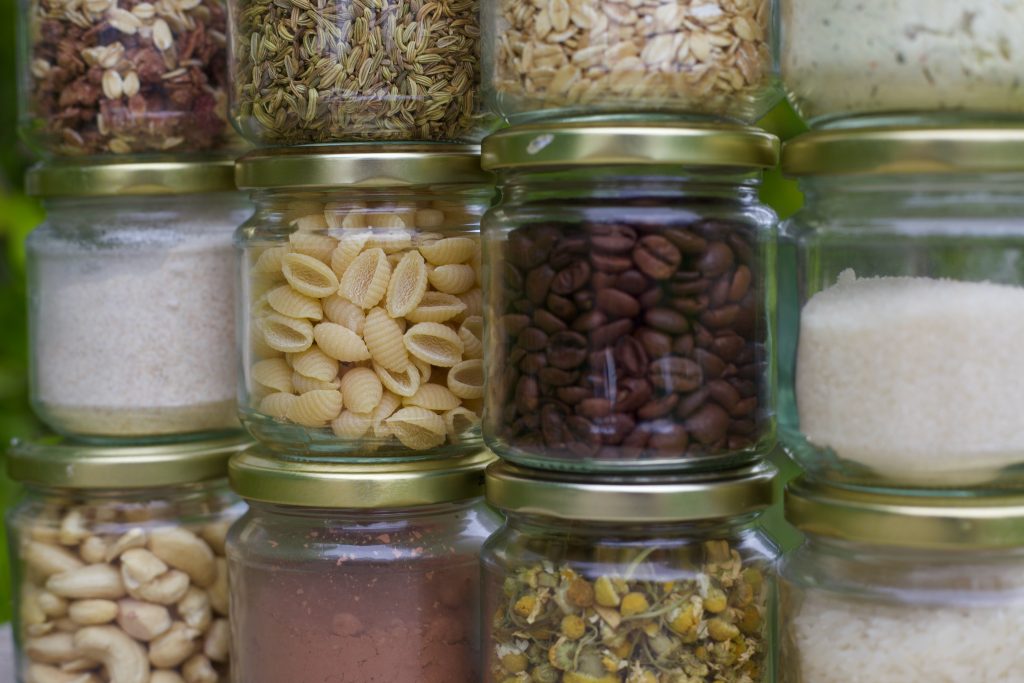
- Say no to plastic packaged cosmetics
Alternatives to plastic packaging have taken the beauty industry by storm in recent years and plant-based plastics, cellulose-based polymers, glass or wood packaging and paper-based tubes are now readily available. You can take it a few steps further and switch to bars for your face, body and hair, or try do-it-yourself personal care products at home. It’s easy to make body scrubs, moisturiser, or even toothpaste with just a few simple ingredients.
- Choose durable period care
Tampons and sanitary pads can take up to 800 years to break down in the landfill but finally, the menstrual game is becoming more sustainable. From cups to washable pads and designer period undies, there’s simply no excuse to not make the switch. Period underwear is just like regular underwear, except it has extra layers of absorbing fabric for light, regular or heavy flow days. Keep in mind that not all sustainable period products are created equal. Choose bamboo or organic cotton for your briefs and pads and medical-grade thermoplastics for your cup.
- Declutter, donate and buy second-hand
Less is more, so grab the opportunity to look at your home with fresh eyes and clear out the items you no longer need or use. Good quality clothes, furniture and household items are always in demand at your local charity shops. The golden rule is to only donate things that are clean, in good condition, and that you would consider buying yourself. Buying pre-loved items over new means you can get high-quality products for a great price, save precious recourses, and make a difference for the environment.
- Start composting
Whether your local council provides you with a food scrap bin or not, composting organic waste makes sense. The composting process is simple and straightforward, and all you need is a bin and a bit of space in your yard. Adding earthworms to your compost stack helps to break down organic matter even faster. Worm castings are nutrient rich, which means your compost will be even better for the garden. It really is a no-brainer to improve your soil and plants’ health at little to no cost and at the same time, save your leftovers from overstuffed landfills.
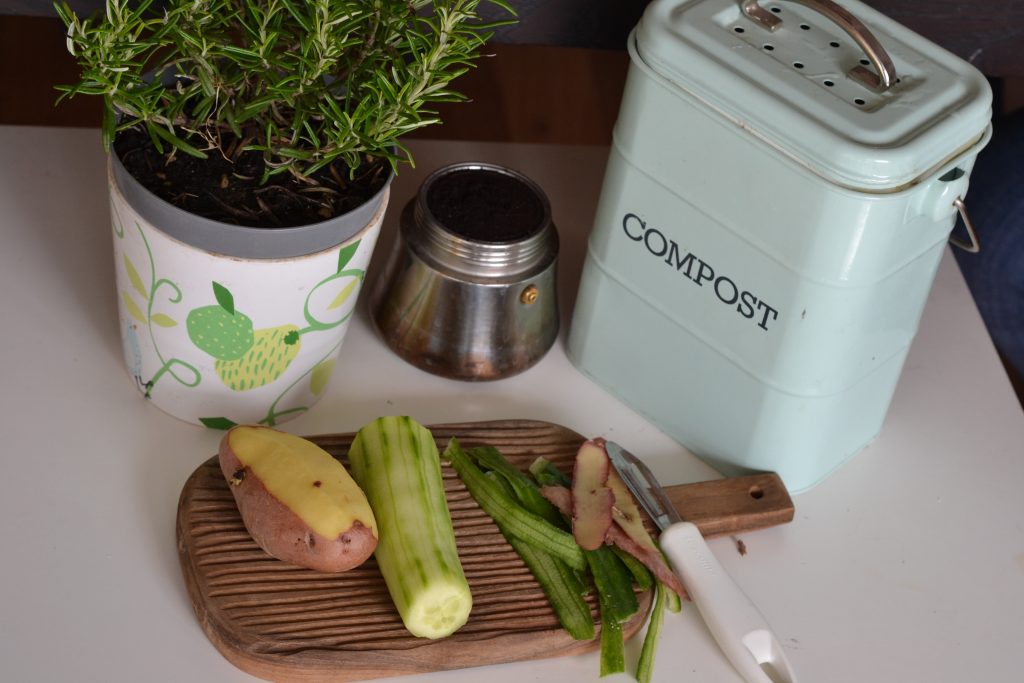
- Downsize your cleaning routine
Put away the spray and wipe because all you need for a squeaky-clean home is one or two zero waste products – baking soda and vinegar. They are both highly effective for cleaning up certain types of messes without using harsh chemicals, and each have their own individual cleaning perks. Baking soda is a natural deodoriser and a fine abrasive, which is good for odour absorption and scrubbing. Vinegar is a natural disinfectant that’s ideal for cleaning floors, bathrooms and most countertops. Castile soap is another great product for the home. It’s 100 percent natural, fully biodegradable and has a range of purposes, from a household cleaner through to personal care.
- Go paper-free
Although it doesn’t happen overnight, getting rid of paper clutter in your home and office isn’t complicated. To drastically reduce the amount of paper, start with saying no to junk mail and circulars, sign up for electronic bills, use a to-do list app instead of sticky notes, and read books on an e-reader. Move your documents to cloud storage options such as Google Drive and Dropbox, and schedule regular backups of your computer. That way, if your computer crashes or gets stolen, you still have all your important files securely stored.
- Support zero waste and ethical brands
A zero-waste approach to life also means not buying products from brands that don’t care much about the health of our planet and saying no to cheaply-made products and fast fashion. If consumers globally pay more attention to how they can shop more sustainably, the industry will take note and more brands will meet the growing demand for environmentally conscious products and clothing. Remember that it’s not about perfection. It’s about making better choices.
